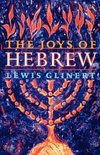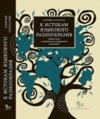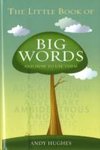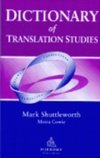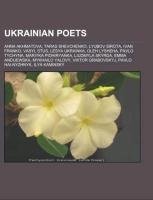
-
 Anglický jazyk
Anglický jazyk
Ukrainian poets
Autor: Source: Wikipedia
Source: Wikipedia. Pages: 53. Chapters: Anna Akhmatova, Taras Shevchenko, Lyubov Sirota, Ivan Franko, Vasyl Stus, Lesya Ukrainka, Oleh Lysheha, Pavlo Tychyna, Mariyka Pidhiryanka, Liudmyla Skyrda, Emma Andijewska, Mykhailo Yalovy, Viktor Grabovskyj, Pavlo... Viac o knihe
Na objednávku, dodanie 2-4 týždne
16.28 €
bežná cena: 18.50 €
O knihe
Source: Wikipedia. Pages: 53. Chapters: Anna Akhmatova, Taras Shevchenko, Lyubov Sirota, Ivan Franko, Vasyl Stus, Lesya Ukrainka, Oleh Lysheha, Pavlo Tychyna, Mariyka Pidhiryanka, Liudmyla Skyrda, Emma Andijewska, Mykhailo Yalovy, Viktor Grabovskyj, Pavlo Hai-Nyzhnyk, Ilya Kaminsky, Yuri Andrukhovych, Ihor Pavlyuk, Bohdan Lepky, Olena Teliha, Alexander Dukhnovich, Serhiy Zhadan, Volodymyr Sosyura, Oksana Zabuzhko, Vasyl Symonenko, Ihor Kalynets, Dmytro Pavlychko, Oleksandr Konysky, Volodymyr Yavorivsky, Yuriy Tarnawsky, Amvrosii Metlynsky, Borys Hrinchenko, Markiyan Shashkevych, Yakiv Holovatsky, Tryzuby Stas, Boris Chichibabin, Bohdan Ihor Antonych, Boris Slutsky, Ivan Drach, Moysey Fishbein, Mykola Bakay, Volodymyr Yaniv, Vasily Kapnist, Leonid Hlibov, Vira Vovk, Ivan Vahylevych, Lina Kostenko, Roman Kudlyk, Mykola Markevych, Volodymyr Tsybulko, Pavlo Chubynsky, Mykola Bazhan, Ivan Mavrodi, Taras Chubay, Boyan, Mykhailo Starytsky, Maksym Rylsky, Genya Turovskaya, Pavlo Movchan, Oleksandr Oles, Tomasz Padura, Iryna Zhylenko, Semyon Gudzenko, List of Ukrainian language poets. Excerpt: Anna Andreyevna Gorenko (Russian: ; Ukrainian: ) (June 23 1889 - March 5, 1966), better known by the pen name Anna Akhmatova (Russian and Ukrainian: ), was a Russian and Soviet modernist poet, one of the most acclaimed writers in the Russian canon. Akhmatova's work ranges from short lyric poems to intricately structured cycles, such as Requiem (1935-40), her tragic masterpiece about the Stalinist terror. Her style, characterised by its economy and emotional restraint, was strikingly original and distinctive to her contemporaries. The strong and clear leading female voice struck a new chord in Russian poetry. Her writing can be said to fall into two periods - the early work (1912-25) and her later work (from around 1936 until her death), divided by a decade of reduced literary output. Her work was condemned and censored by Stalinist authorities and she is notable for choosing not to emigrate, and remaining in Russia, acting as witness to the atrocities around her. Her perennial themes include meditations on time and memory, and the difficulties of living and writing in the shadow of Stalinism. Primary sources of information about Akhmatova's life are relatively scant, as war, revolution and the totalitarian regime caused much of the written record to be destroyed. For long periods she was in official disfavour and many of those who were close to her died in the aftermath of the revolution. Akhmatova was born at Bolshoy Fontan, near the Black Sea port of Odessa. Her father, Andrey Antonovich Gorenko, a civil servant, and her mother, Inna Erazmovna Stogova, were both descended from the Russian nobility. Akhmatova wrote, "No one in my large family wrote poetry. But the first Russian woman poet, Anna Bunina, was the aunt of my grandfather Erasm Ivanovich Stogov. The Stogovs were modest landowners in the Mozhaisk region of the Moscow Province. They were moved here after the insurrection during the time of Posadnitsa Marfa. In Novgorod they had been a wealthier and more di
- Vydavateľstvo: Books LLC, Reference Series
- Rok vydania: 2011
- Formát: Paperback
- Rozmer: 246 x 189 mm
- Jazyk: Anglický jazyk
- ISBN: 9781156646359
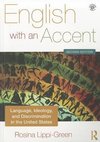

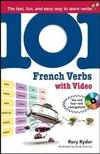
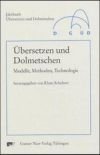
 Nemecký jazyk
Nemecký jazyk 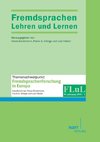
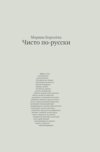
 Ruský jazyk
Ruský jazyk 
